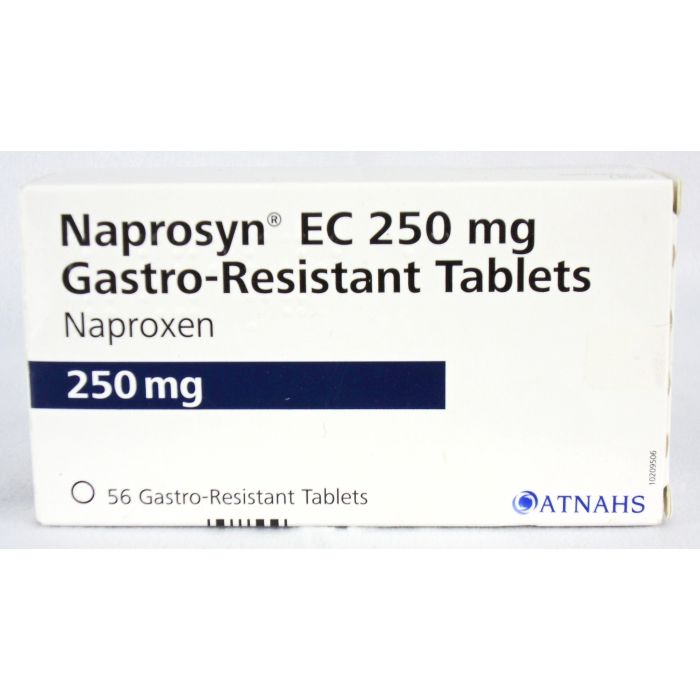Naproxen for Gout
Naproxen is an NSAID: an anti-inflammatory pain reliever. It contains the active ingredient naproxen. Naproxen slows down the production of prostaglandins, a hormone-like substance that acts as a mediator of pain, fever, and inflammatory responses such as the swelling and redness caused by gout.
the items you wish
to order

by our qualified
prescriber
to your door step
Please use the options provided to make your final selection.

| Brand | Medicine Strength | Size | Price |
|---|---|---|---|
| Naproxen for Gout | 250mg | 28 Tablets | 12.00 |
| Naproxen for Gout | 250mg | 56 Tablets | 17.00 |
| Naproxen for Gout | 250mg | 84 Tablets | 23.00 |
| Naproxen for Gout | 500mg | 28 Tablets | 15.00 |
| Naproxen for Gout | 500mg | 56 Tablets | 23.00 |
| Naproxen for Gout | 500mg | 84 Tablets | 32.00 |
| Naprosyn for Gout | 250mg | 112 Tablets | 46.00 |
| Naprosyn for Gout | 250mg | 168 Tablets | 67.00 |
| Naprosyn for Gout | 250mg | 56 Tablets | 25.00 |
| Naprosyn for Gout | 500mg | 112 Tablets | 47.00 |
| Naprosyn for Gout | 500mg | 168 Tablets | 69.00 |
| Naprosyn for Gout | 500mg | 56 Tablets | 26.00 |
| Naproxen EC for Gout | 250mg | 112 Tablets | 47.00 |
| Naproxen EC for Gout | 250mg | 168 Tablets | 63.00 |
| Naproxen EC for Gout | 250mg | 56 Tablets | 23.00 |
| Naproxen EC for Gout | 500mg | 112 Tablets | 62.00 |
| Naproxen EC for Gout | 500mg | 168 Tablets | 91.00 |
| Naproxen EC for Gout | 500mg | 56 Tablets | 33.00 |
| Naprosyn EC for Gout | 250mg | 112 Tablets | 53.00 |
| Naprosyn EC for Gout | 250mg | 168 Tablets | 76.00 |
| Naprosyn EC for Gout | 250mg | 56 Tablets | 29.00 |
| Naprosyn EC for Gout | 500mg | 112 Tablets | 65.00 |
| Naprosyn EC for Gout | 500mg | 168 Tablets | 93.00 |
| Naprosyn EC for Gout | 500mg | 56 Tablets | 35.00 |
It looks like you missed filling in questions from the last consultation.Click Here to submit your response.


It is the prescribers duty to ensure that the medicine is being used safely and appropriately. please answer a few questions about yourself to help us process your request.
Customer Service Team
Confidentiality & Authenticity Assured
- Fully Regulated UK Pharmacy
- Authentic UK sourced medicines only.
- Trading for more than 10 years.
- Information Governance lead ensures all data is confidential
Need Help With Your Questionnaire?
Our customer service team is on hand Monday-Friday to help you with your queries.
Please call us on 08009788956 or
email us at: headoffice@pharmacyplanet.com
Naproxen is an NSAID: an anti-inflammatory pain reliever. It contains the active ingredient naproxen. Naproxen slows down the production of prostaglandins, a hormone-like substance that acts as a mediator of pain, fever, and inflammatory responses such as the swelling and redness caused by gout.










